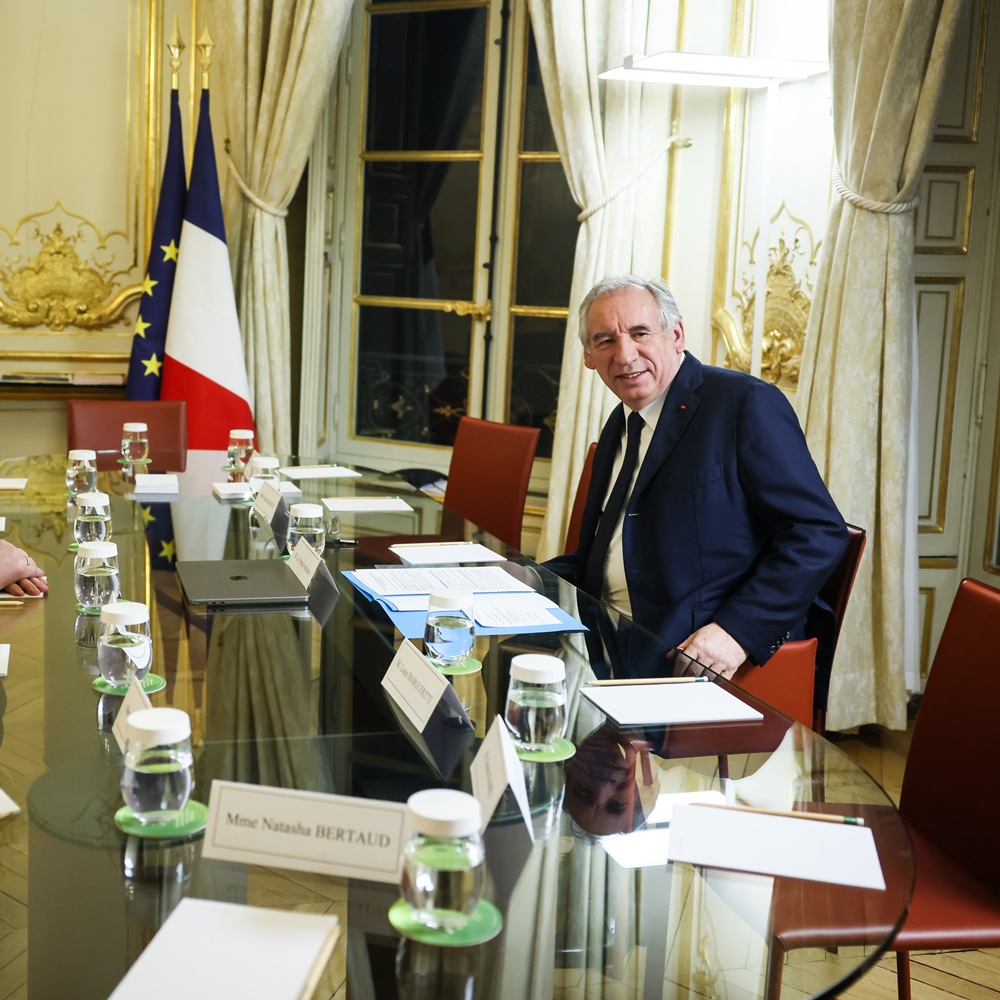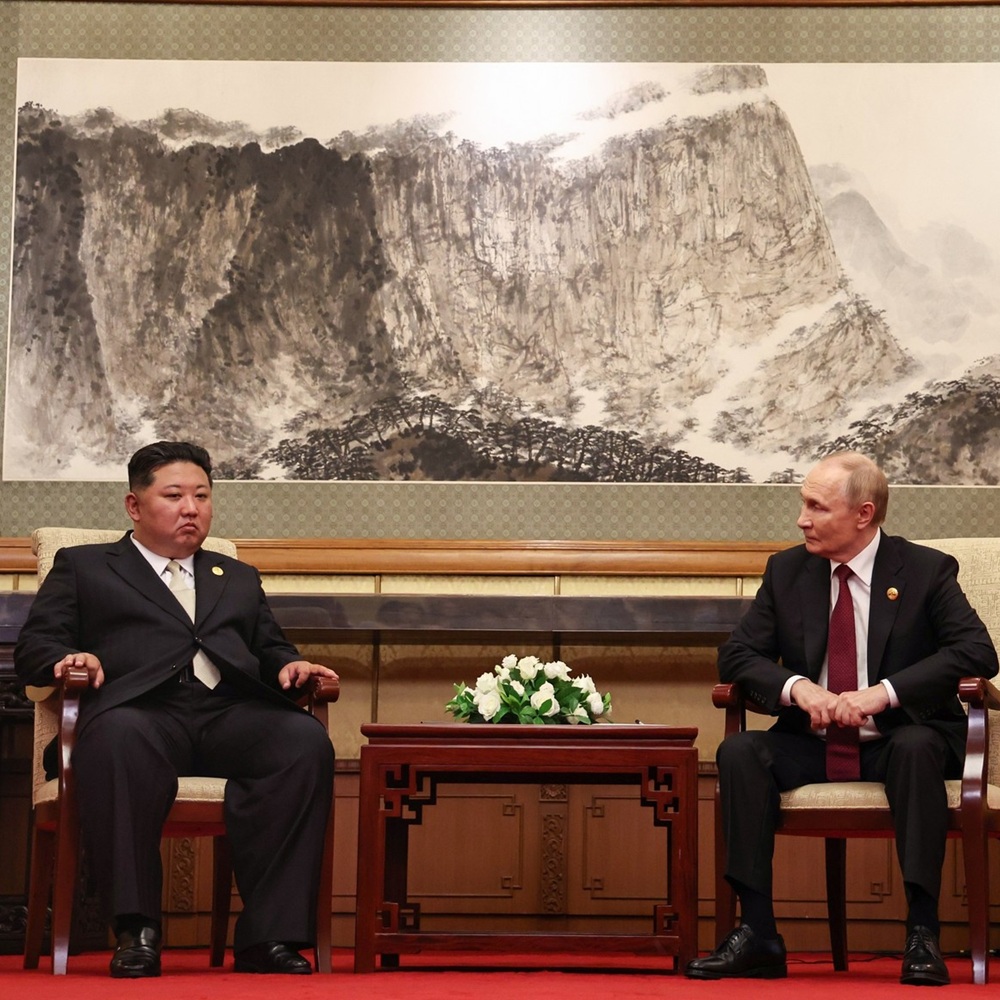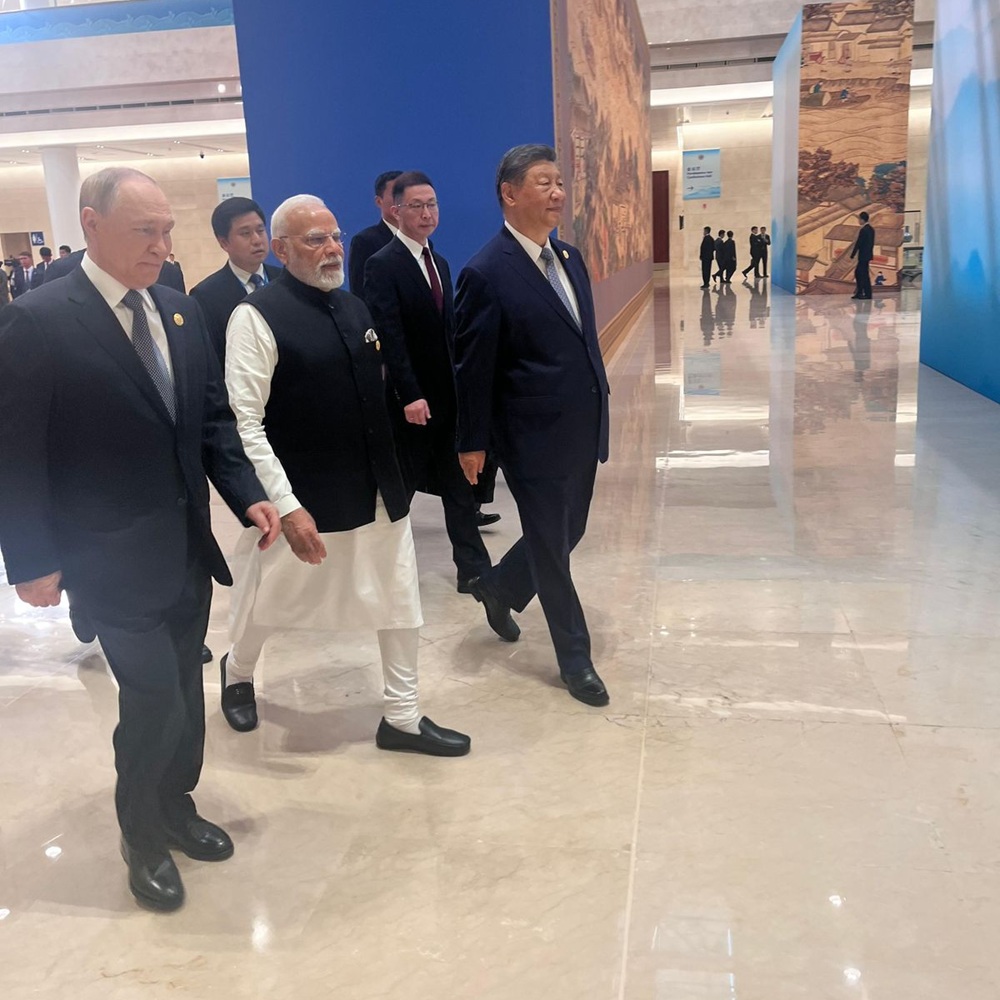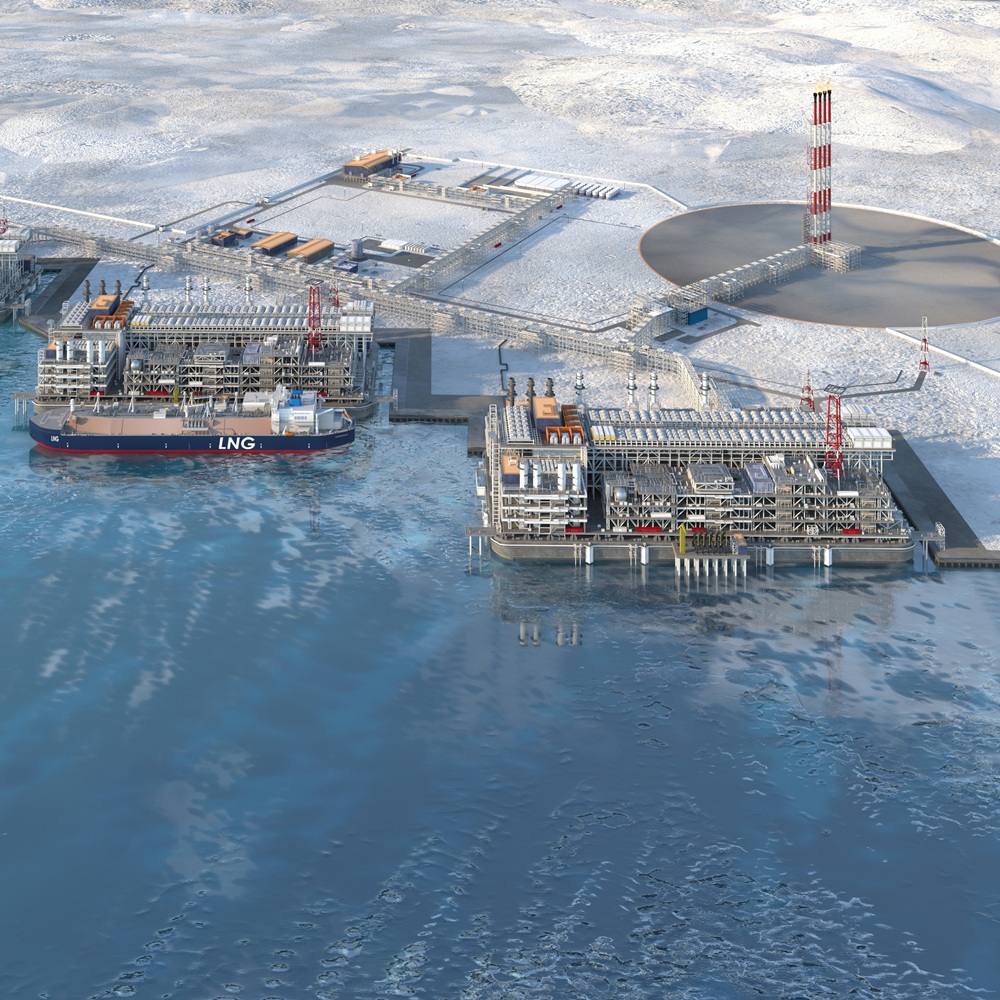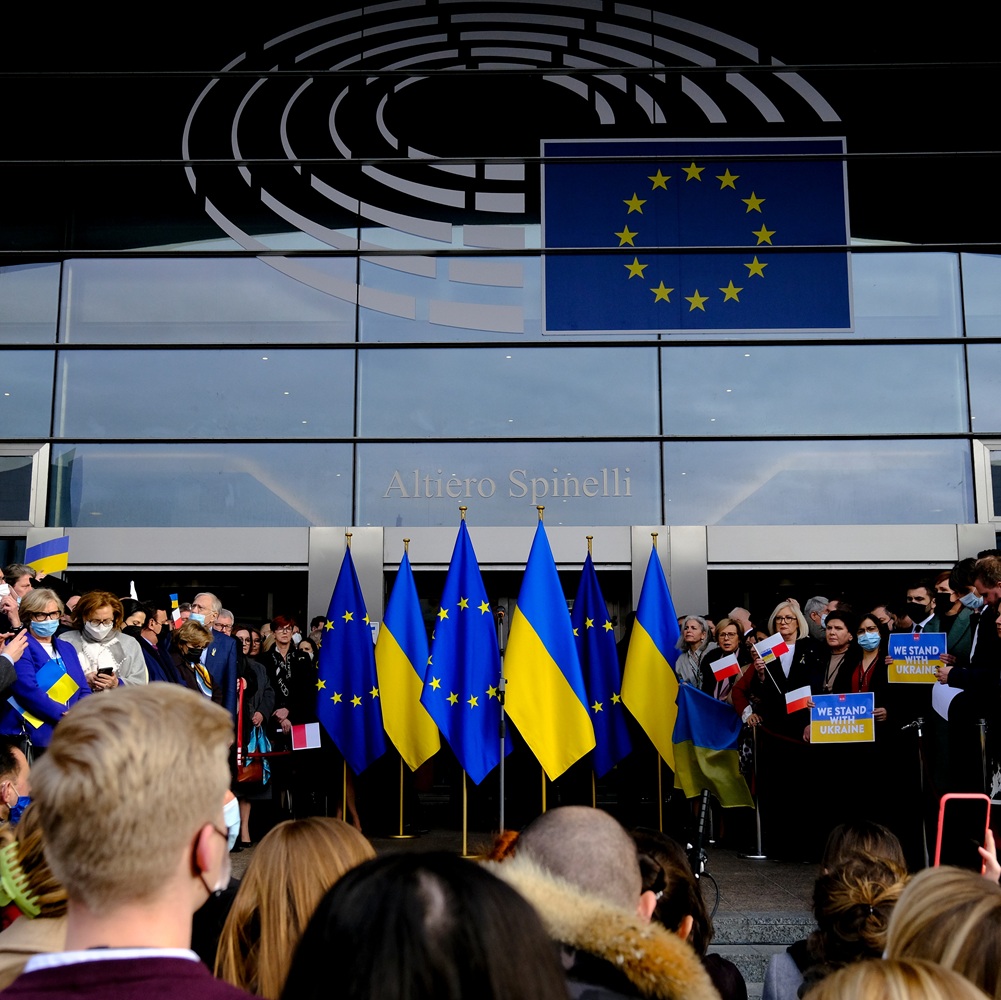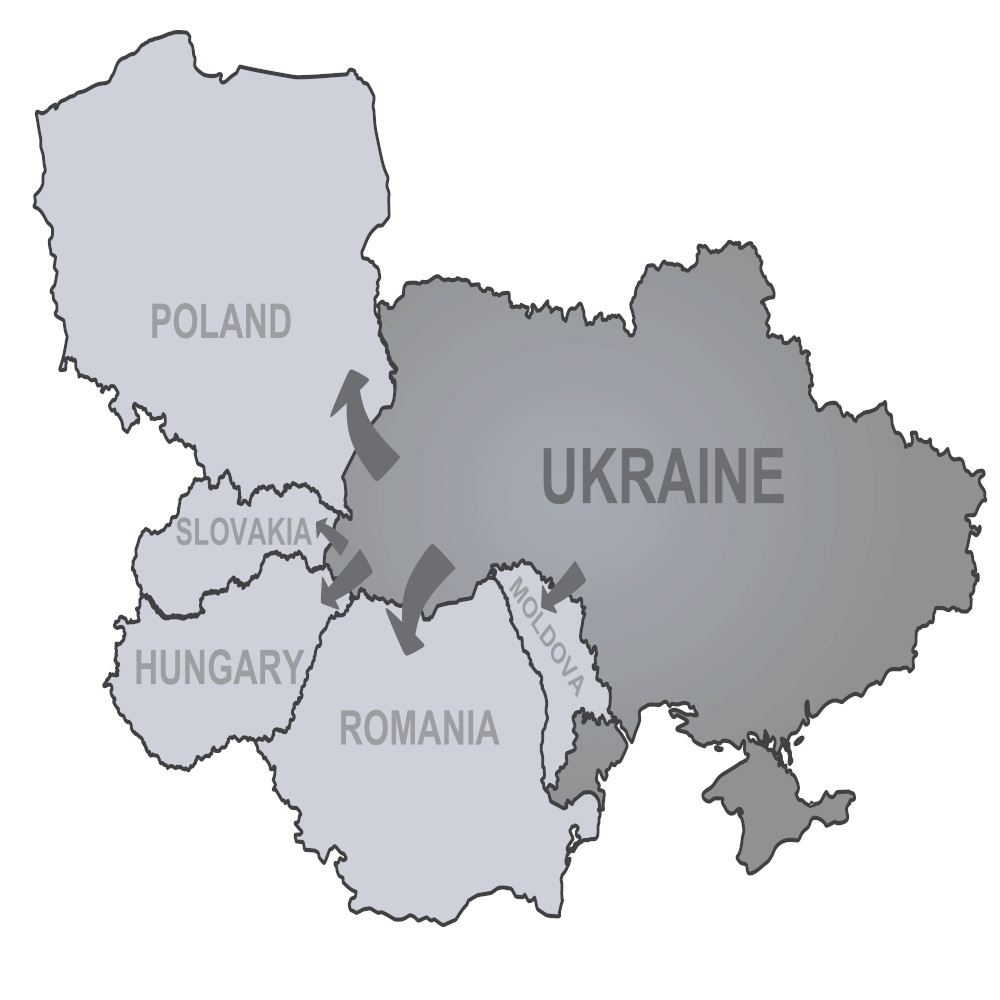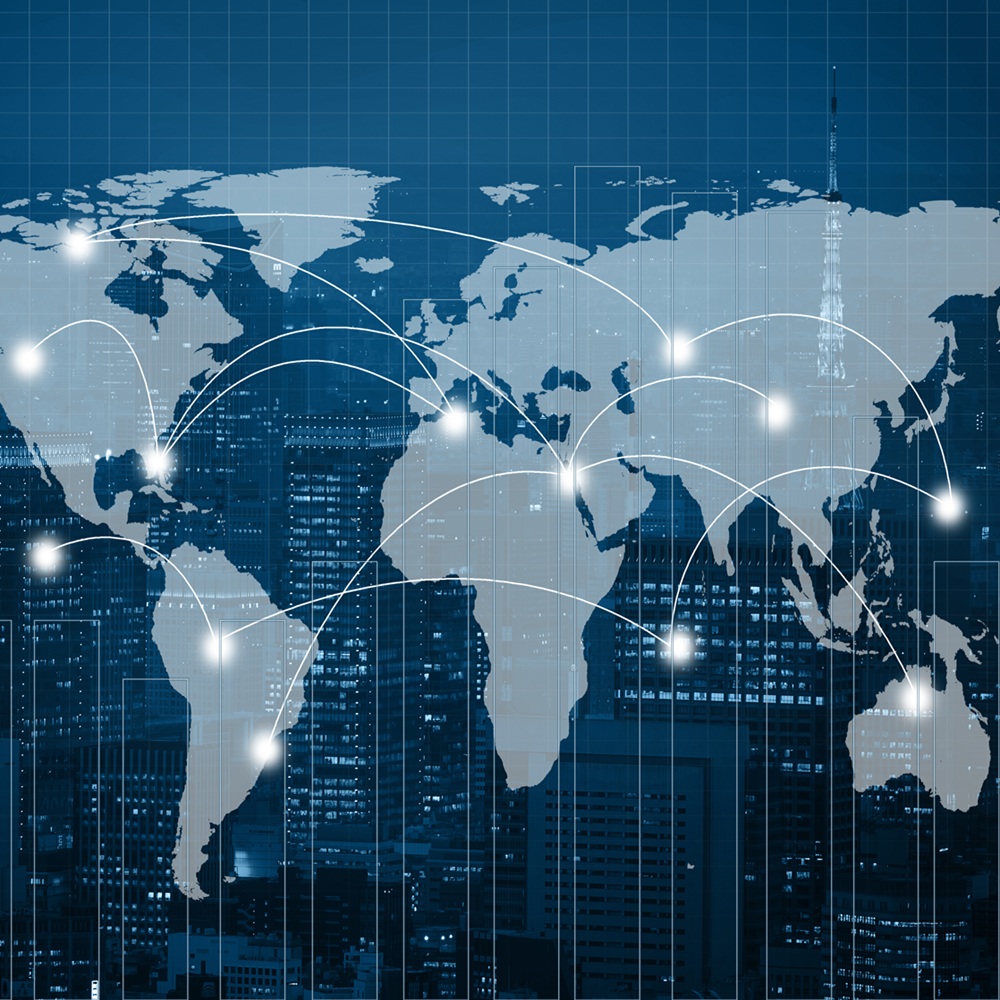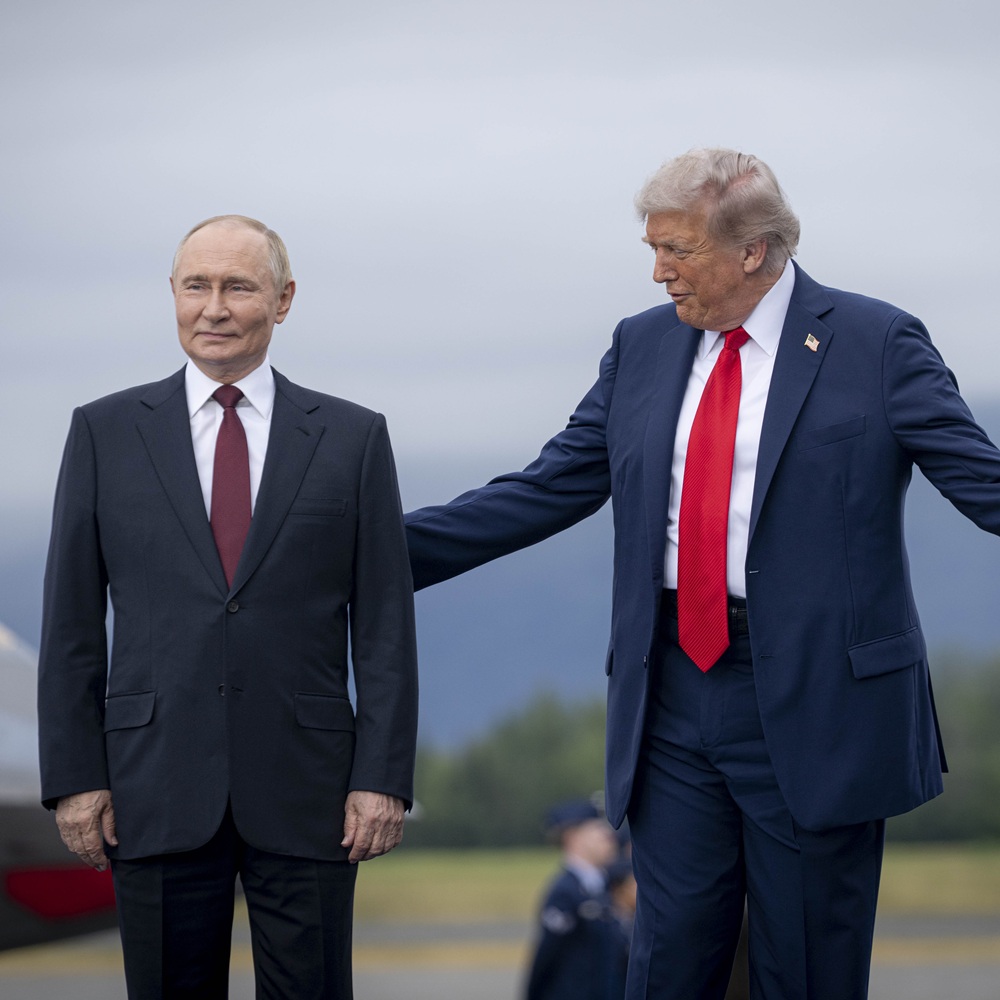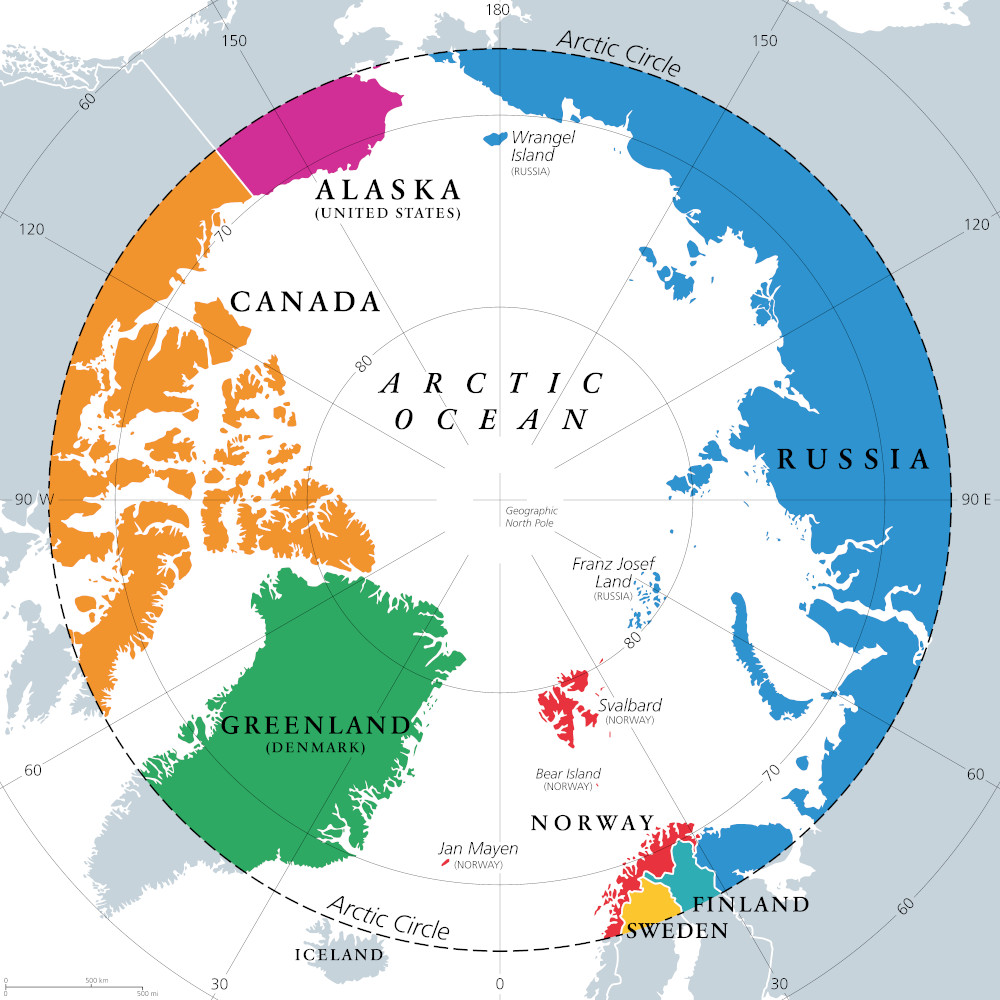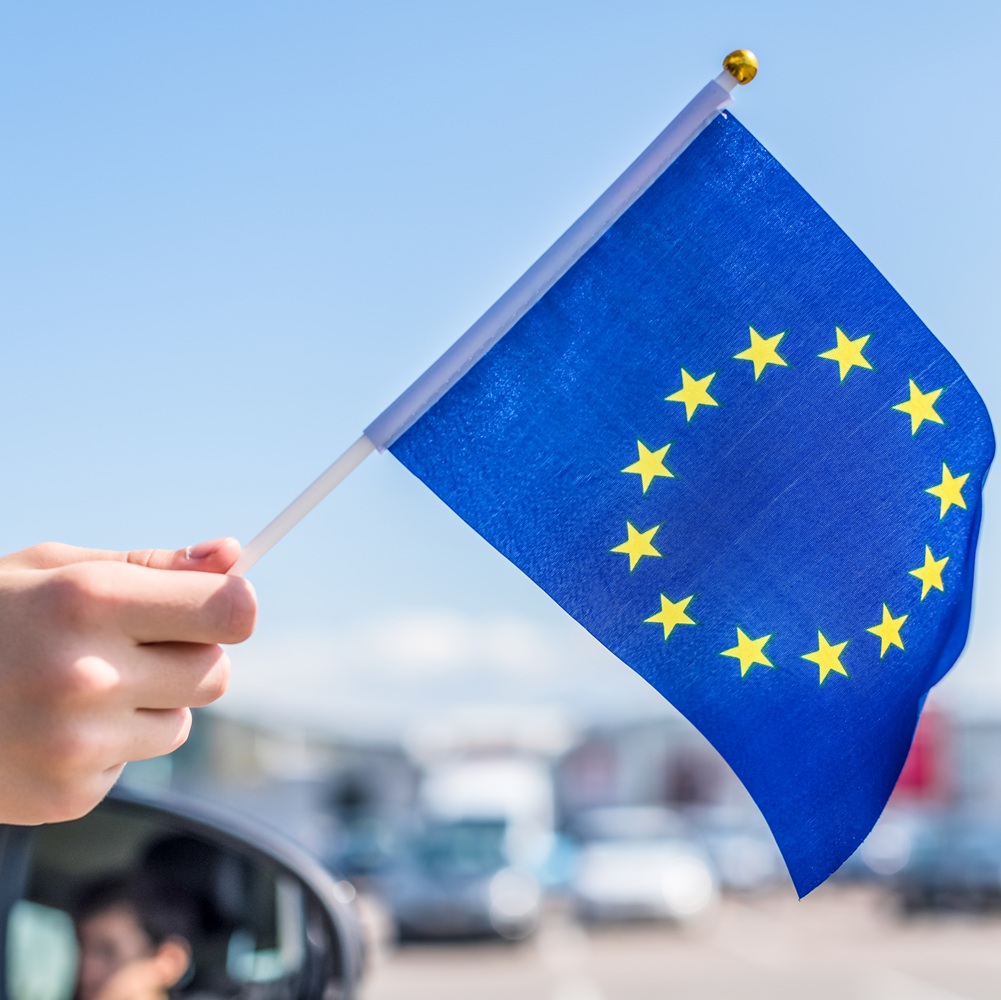
Legitimacy of differentiated integration in the European Union
by Thomas Mehlhausen , Adrian Wagstyl , Robert Grzeszczak
ABSTRACT This article discusses the legitimacy of differentiated integration in the European Union (EU). By dovetailing three sources of legitimacy, i.e. legal, social and political justification, we plait various strands of literature in an interdisciplinary, multi-facetted and systematic approach. We distinguish between the two extreme ideal types of differentiation, i.e. multi-speed Europe and Europe à la carte. In our analysis, we take normative intergovernmentalism and supranationalism by considering the legitimacy effects of differentiation for EU citizens and member states. We plead for an interdisciplinary approach by hypothesising a virtuous and a vicious circle of differentiation for further EU integration. We argue that differentiation as such does not help to solve problems due to the heterogeneity of member states` preferences but tends to postpone conflicts, thereby prompting further challenges for European integration rather than easing them.KEYWORDS:Integration, disintegration, differentiation, interdisciplinary, Europe à la carte, multi-speed Europe 1. Introduction Differentiation has been vital to European integration in the previous decades. It served to reconcile disparate preferences among member states pertaining to the deepening European integration. Initially, differentiated integration (DI) was expected to be a temporary deviation from uniform integration, prompting other states to join later. And indeed, there have been rather unlikely cases of member states eventually attempting to join the vanguard, such as the Danish entry to the European Security and Defence Policy in June 2022 in response to Russia's attack on Ukraine. Despite some cases of continuous integration, DI proved to be a persistent feature of the EU´s evolving institutional architecture (see Radunz & Riedel, Citation2024). Even though DI constitutes a decision of member states to integrate further in small groups, it raises the question of whether it can provide for appropriate solutions for numerous common challenges in the EU. Should DI become the standard procedure for finding compromises, whereas uniform solutions remain rare exceptions? Is it fair for both the vanguard and the outsiders if deepening takes place asynchronously? In short, the article addresses the question of how legitimate is DI in the EU. The bulk of literature on the democratic legitimation of the EU has long paid little attention to differentiation (Moravcsik, Citation2002, Follesdal & Hix, Citation2006, Müller, Citation2016; Craig, Citation2021; but see De Witte et al., Citation2017; Heermann & Leuffen, Citation2020) while contributions to DI have been largely conceptual (Stubb, Citation1996, Holzinger & Schimmelfennig, Citation2015, Klose et al., Citation2023) or explanative (Lavenex & Krizic, Citation2022; Schimmelfennig et al., Citation2023a, Citation2023b Schimmelfennig & Thomas, Citation2020;). We do not contribute to this literature but seek to dovetail different existing strands of research by proposing a systematic approach to the legitimacy of DI in the European Union. We do not present primary sources but take stock of existing studies and develop a multifaceted heuristic to approach the phenomenon of DI legitimacy. Our approach complements existing analyses of DI by explicitly integrating legal, social and political dimensions in a single interdisciplinary framework. When studying legitimacy, we take an interdisciplinary perspective by distinguishing between legal, social and political sources to justify DI. In conclusion, we plead for more research into their interplay.Footnote1 We proceed as follows. First, we define DI and derive from a plethora of conceptions the two most disparate ideal types of multi-speed Europe and Europe à la carte. Second, we discuss differentiation along its legal, social and political sources for justification. Finally, we argue that differentiation needs to be vindicated based on all three sources. After all, differentiation as such does not help to solve problems due to the heterogeneity of member states preferences but tends to postpone conflicts, thereby prompting further challenges for European integration rather than easing them. 2. Models of EU differentiation In a basic understanding, European integration becomes differentiated as soon as at least one member state does not fully participate in a common policy field. The more policy fields this concerns, the more the EU is differentiated vertically, the more member states abstain from further deepening the more it is differentiated horizontally (Schimmelfennig et al., Citation2015). In the following, we focus on formal and internal DI, i.e. among EU member states, and neglect forms of external DI, which also embraces non-members (Cianciara & Szymanski, Citation2020) and informal DI (Genschel et al., Citation2023; Kovar & Katerina, Citation2022). Yet, DI remains a highly ambiguous term. Empirically, Frank Schimmelfennig and Thomas Winzen (Citation2020, p. 48) count as many as 230 cases of (primary law) differentiation in EU history. Conceptually, Alexander Stubb (Citation1996) observes more than 30 alternative labels for forms of asynchronous integration. To deal with this plethora of competing descriptions of various forms of differentiation, Stubb proposed in his seminal work three Weberian ideal types, which are by definition rarely fully matched in reality: In multi-speed Europe, a core group of member states pursues common objectives to be later caught up by other member states. In variable geometry, the EU irreversibly separates between a core and a periphery. In Europe à la carte, member states are free to pick-and-choose while pursuing a minimum number of common objectives. Katharina Holzinger and Frank (Citation2012) criticise this threefold conceptualisation as not being analytically distinct and incomplete given the lack of purely functional conceptions. They single out six dimensions, along which DI models may vary: (1) permanent v. temporary differentiation, (2) territorial v. purely functional differentiation, (3) differentiation across nation states v. multi-level differentiation, (4) differentiation within v. outside the EU treaties, (5) decision-making at EU v. regime level and (6) only for member states v. also for non-member states. They then assign ten models to these different categories. Although we acknowledge this categorisation is much more nuanced and consistent than Stubb’s ideal types, we will nonetheless restrict our discussion of the legitimacy of DI to the most extreme models, i.e. multi-speed Europe and Europe à la carte. First, they are associated with the most extreme finalité conceptions. Second, these two models differ with regard to four out of six categories (1, 4, 5 and 6) as proposed by Holzinger and Schimmelfennig. Third, they both appear to resonate well among political actors, as we show in a German-Polish case study (Mehlhausen et al., Citation2024). Multi-speed Europe: In this model, all member states must commit to common goals of further integration, which every may accomplish at individual speeds. Asynchronous integration would be merely temporary since every state is expected to catch up eventually. Due to its flexibility, this mode of constitutional transformation is likely to overcome deadlocks and propel further integration. It is why decisions would still be reached by the community method based on EU treaties and would apply to the entire EU, at least prospectively. Prime examples of multi-speed Europe would be the pre-ins in the European Monetary Union: All member states, which accessed the EU in 2004 and 2007 committed to introducing the Euro as soon as they meet the accession criteria. Europe à la Carte: In such an approach, any member state is entirely free to decide to cooperate with other member states more closely in selected policy fields. Given the heterogeneity of preferences among EU member states, such a pick-and-choose approach likely result in numerous islands of integration and, most likely, set free disintegrative dynamics. Due to membership incongruence across policy fields, supranational bodies are no longer representative. It fosters intergovernmental decision-making in coalitions of the willing within or beyond EU treaties. A prime example in the European Monetary Union is Danish opt-outs combined with prospective opt-ins at a later moment. 3. Legitimacy of differentiation integration Legitimacy is at the core of any political rule. The more legitimate a political order, the higher its efficacy and the lower its control and compliance costs, since citizens voluntarily follow collectively binding decisions. In short, legitimacy is the precondition of both efficient and liberal governance (Scharpf, Citation2004, p. 5). Many conceptions exist as to what legitimacy means. To take account of the multifaceted nature of this pivotal term, we propose to distinguish three sources of legitimacy (cp. Beetham, Citation1991, pp. 4–8; Føllesdal, Citation2004, pp. 8–9; Wimmel, Citation2009, pp. 192–194): a legal, a social and a political one. This especially resonates with Beetham’s (Citation1991, pp. 3–15) distinction of legitimacy as legal validity, moral justifiability and belief in legitimacy, but it does not overlap with it. Legal justification rests on the juridical basis applying to a specific legal entity. Political action is legally legitimate only insofar as it adheres to positively stated rules. In the context of the EU, it determines whether decisions taken by the EU institutions or member states have a legal basis in the Treaties. From this perspective, the EU law permits or does not permit a given action. Notably, an action must be clearly specified in EU primary law to be taken by EU institutions or member states, especially in the context of differentiated integration. Given the current state of EU law and CJEU case law, the doctrine of implied competence has no basis in this area. Social justification refers to the citizens’ belief in legitimacy (‘Legitimitätsglaube’) (Weber, Citation1964). The higher the support of a polity, its politics or single policies, the better political rule can be vindicated socially. In contrast to Føllesdal (Citation2004) and Wimmel (Citation2009), we restrict our analysis to the citizens´ attitudes in terms of opinion polls and neglect their compliance with political rules since we regard the cognitive level causally prior to the behavioural level. Compliance constitutes the link between citizens` attitudes and its effects on the political order. Political justification relies on shared values, the adherence to which is widely regarded as a duty for community members. The more these values resonate among community members, the more imperative their implications for political action are in following norms and principles. An unequivocal and repeated breach of such norms or principles has severe ramifications for the collective identity and its cohesion (Mehlhausen, Citation2015). In the context of European integration, the value arguably most debated has been the EU’s democratic nature. Moreover, any evaluation of legitimacy must state its legitimacy standard. Evaluating the EU`s democratic legitimacy depends on whether we compare it to international organisations, nation states or conceptions of democracy (Wimmel, Citation2009, pp. 192–194). We propose adopting two normative standards to analyse how far European integration can be justified. Normative intergovernmentalism rests on the notion of states` sovereignty being the foundation of international organisations. Its application to the European Union can be justified by the fact that member states are its constituents as ‘masters of the treaties’. Beyond the nation state, governments are seen as bearers of democratic legitimacy since public discourses, election campaigns and collective identities are predominantly shaped within nation states (Scharpf, Citation1999, Citation2004). Normative supranationalism considers citizens and, thus, popular sovereignty as the ultimate source of democratic legitimacy. European citizenship and the supremacy of EU law serve as arguments for applying such a cosmopolitan approach to the EU (Eriksen, Citation2019, pp. 163–186). In our analysis, we will adopt both standards to assess the legal, social and political justification of DI. We proceed in this order since European integration – in contrast to revolutionary constitutionalisation – has been initiated by EU treaties (legal dimension), instilling incrementally a weak European collective identity (social dimension) and eventually raising normative questions of its legitimation (political dimension). Although these three sources of legitimacy are presented separately for analytical clarity, they are interdependent in practice. 3.1. Legal sources of legitimacy When defining legal justification, we follow the concept of integration through law (ITL), according to which law is perceived both as an instrument and subject of European integration (Byberg, Citation2017; Mac Amhlaigh, Citation2012). In the first dimension, the EU legal system consists of the EU Treaties and the case-law developed by the Court of Justice of the European Union (CJEU). ITL propels European integration through common legal rules and fundamental principles, e.g. the principle of direct effect or the principle of primacy of EU law. In the second dimension, the emphasis is put on national legal systems subject to harmonisation coordinated by a central authority, e.g. the European Commission. We argue that if any mode of differentiation shall be justifiable within the EU legal order, it must be based on the EU primary law. Legal justification, defined as such, is inextricably intertwined with the notion of the uniformity of EU law. On the one hand, this principle envisions that the EU constitutes a new legal order, separate from international law (judgement of 5 Feb. 1963, C-26/62, EU:C:1963:1), establishing its basis for action. Accordingly, integration is governed by the EU Treaties and can only derive justification from them. On the other hand, the principle of uniformity obliges the national courts and the public administrations of member states to disapply any domestic provisions contrary to EU law (judgement of 9.03.1978, Simmenthal SpA., EU:C:1978:49). This is of profound significance for the existence of the EU as a legal system, which must be uniform and equally applied in all member states. In addition to guaranteeing the effectiveness of EU law, legal uniformity entails the principle of equality of member states, since all shall set aside national legislation, which might prevent EU law from having full force and effect. Accordingly, each member state has the same rights and obligations under the Treaties and cannot derogate from their enforcement. From a legal perspective, differentiation is thus justified only insofar it does not, in the long term, undermine the uniformity of EU law and equality of member states and EU citizens. Moreover – based on art. 20 (1) TEU – we claim that any differentiation instrument must aim to further the objectives of the Union, protect its interests and reinforce its integration process. The legal basis for DI is mainly contained in the primary law. In particular, the Treaties lay down clear conditions for member states that wish to pursue it through the mechanism of enhanced cooperation (art. 326-334 TFEU). First, it is permitted only within the shared competences of the EU. Second, it is approved by the EU institutions and must not undermine key EU policies (e.g. the competition law or the freedoms of the internal market). Third, to avoid long-term fragmentation, enhanced cooperation must remain open to all member states. On the other hand, primary law also recognises individual opt-outs, which exclude a member state from selected policy areas (e.g. the euro area). These are always subject to intergovernmental negotiations. As such, they should not be regarded as the guiding logic of European integration but are simply documenting the exceptions to the rule. The central tenets of a multi-speed Europe are legally justified within the current EU legal framework. In theory, forms of cooperation between member states based on this ideal type are permissible under the Treaties as long as they do not undermine the uniformity of EU law and the equality of member states. Regarding these principles, enhanced cooperation provides for temporary differentiation in the application of the laws established within its framework, provided that the project is inclusive and fosters uniform integration in the long term. Europe à la carte, on the other hand, stands in contrast to the principles of legal uniformity and equality of member states. First, it is difficult to imagine that a uniform application of EU law is upheld when the Union is divided into numerous islands of integration. Second, if member states are allowed to opt in and out of common policies, there is no equality before EU law between them, as each has different rights and obligations. Even though there is some manifestation of this vision in the primary law in the form of opt-outs, these should be merely regarded as a mechanism of last resort to break serious political stalemates during treaty negotiations. As all member states have agreed in the Treaties to continue the process of creating an ever-closer union, the pick-and-choose approach has no legal justification as a general instrument of differentiation. Adherence to the doctrine of uniform interpretation and application of EU law has a profound effect on the functioning of the EU and its member states, and on the legal status of their citizens. In general, the more uniform the application of EU law, the better the protection of citizens’ rights under it. Moreover, a common understanding of EU law in the member states increases legal certainty for EU citizens, as it is possible to predict how national authorities across Europe interpret it. Since the concept of a multi-speed Europe is based on the premise that uniform application of EU law is the ultimate goal, it has a much higher justification from the perspective of the legal status of EU citizens than Europe à la carte. Theoretically, even though the scope of application of EU law enshrining citizens’ rights may slightly differ across the EU due to the varying participation of member states in multi-speed projects, they all still participate in core EU policies (e.g. the internal market) and ultimately aim for a homogeneous EU. It does not mean, however, that the ideal type of a multi-speed Europe fits perfectly into the logic of the existing Treaties. Instead, its acceptance arises from the need to find a compromise between EU principles and political realities in the member states. In contrast, the completion of a Europe à la carte would arguably lead to a differentiation of the legal status of EU citizens depending on their country of origin, e.g. the freedom of movement applying only to nationals of certain member states. In addition, this finalité conception may significantly decrease the legal certainty of EU citizens, as there is little or no common denominator between member states in the application of EU law. It would, therefore, be difficult for citizens to anticipate the outcome of a legal dispute concerning their rights in different national jurisdictions within the EU. Therefore, the answer to the question of whether DI is legally justified is highly theoretical and speculative. Regarding Europe à la carte, we do not find any direct justification in the EU primary law for this finalité conception. It contradicts the EU principles of uniform integration, which guarantees a coherent legal system, ensuring equal rights and obligations of all member states and EU citizens. The pursuit of such an approach would entail a substantial revision of the Treaties. In contrast, the concept of a multi-speed Europe respects the uniformity of EU law and equality of member states and EU citizens in the long term. Nonetheless, even multi-speed Europe requires vigilant legal oversight to prevent permanent deviations from uniformity and to ensure compliance with Article 20 TEU objectives. In addition, some multi-speed projects have already been initiated under the Treaty-based procedure of enhanced cooperation (e.g. concerning the divorce law, patents and the financial transaction tax). On the other hand, any of the scenarios do not fit into the logic of the existing Treaties, as uniform integration is the preferred mode. 3.2. Social sources of legitimacy Social justification refers to the citizens’ approval of political rule by their democratically elected representatives. In a democracy, political decisions are expected to broadly reflect the citizens’ preferences by means of free and fair elections, channels of direct democracy, and a high responsiveness of political representatives. Further European integration is widely accepted to hinge on public support (Hobolt & de Vries, Citation2016 Leuffen et al., Citation2020;). The social justification of EU differentiation raises the question to what extent its citizens approve of differentiation. Nevertheless, we need to specify the model of differentiation we refer to and the exact group of people we address when speaking of citizens. On the one hand, outcomes of opinion polls vary considerably depending on the specific differentiation concept and wording applied (Schüssler et al., Citation2021, p. 19; Stahl, Citation2021). On the other hand, we might address either EU citizens, regardless of their national affiliation, or EU member citizens in terms of state people. In short, we may apply either normative intergovernmentalism on the attitudes of EU member states` citizens or normative supranationalism on the dispositions of EU citizens, each time distinguishing between the competing models of multi-speed Europe and Europe à la carte. Normative intergovernmentalism focuses on EU member states’ people, whose national representatives are held accountable by their electorate. Approval rates for multi-speed Europe vary across space and time. A positive perception of differentiation is consistently and substantially much higher among Northern than Southern member states. Based on Eurobarometer 86.1 fielded in September and October 2016 (Leuffen et al., Citation2020, p. 9; similar Schüssler et al., Citation2021, p. 17; Stahl, Citation2021, p. 10f.), we observe that support for DI among citizens in Southern Europe is about 21 percentage points lower than in Northern Europe and remains largely stable even when testing against individual-level covariates. The concept of Europe à la carte is more controversial among EU member states. Attitudes among citizens in EU member states vary considerably, with no apparent pattern between Southern and Northern member states and net contributors and recipients. For example, in their analysis of eight EU member states, Schüssler et al. (Citation2021, p. 12) find that in Germany and Ireland citizens disapprove of such a pick-and-choose approach while those in Denmark, Netherlands, Poland, Greece, France and Italy are supportive. Similarly, Anna Stahl (Citation2021, p. 10) sees Southern member states divided on the possibility of building coalitions of the willing. Which implications does this have for the social justification of differentiation? The regional cleavage regarding multi-speed Europe correlates with the divide between EU budget net contributors and recipients and is likely to be the result of the Eurozone crisis (Leuffen et al., Citation2020, p. 2). Should such tensions occur due to citizens’ anxiety about being left behind or permanently discriminated (Schüssler et al., Citation2021, p. 19), the EU could take appropriate measures to alleviate such concerns. If an asynchronous approach is taken simply due to economic asymmetries, redistributive funds could help those member states less off to swiftly catch up with the avant-garde. This could lead to higher public support for (differentiated) integration in these states. In contrast, Europe à la carte likely drive a wedge between member states. A systemically applied pick-and-choose approach would hardly be acceptable as a modus vivendi for European integration in key policy fields. Not only is it hard to discern any patterns regarding which political measures might be addressed to raise public support. Also, resistance appears to be of rather principled nature. Schüssler et al. (Citation2021, p. 13) argue that Germany’s disapproval seems to be the expression of ‘a greater normative-cultural preference towards a unified Europe’. And yet, if sparsely granted, opt-outs or pre-ins could serve as a (permanent or temporary) compromise between full membership and no membership and bring those in favour and against further integration closer again (Schraff & Schimmelfennig, Citation2020). Normative supranationalism considers EU citizens to be the only constituents of the EU (Eriksen, Citation2019). Most EU citizens are in favour of either model of differentiation. While approval rates for multi-speed Europe have mostly reached an absolute majority in the past years (Leuffen et al., Citation2020, p. 8), support for Europe à la carte remains only slightly short of such a majority, with 19 per cent more supporters than opponents (Schüssler et al., Citation2021, p. 13). Leuffen et al. (Citation2020) used Eurobarometer data from 2011 and 2017 and Schüssler et al. (Citation2021) present own data from early 2021. Schüssler et al. (Citation2021) use the term two-tier Europe but it does not differ semantically from our understanding of multi-speed Europe. Yet, this does not imply that differentiation is undisputed among EU citizens. On the one hand, every differentiation model is associated with diverging expectations regarding further integration. Proponents of multi-speed Europe display integrationist dispositions, while advocates of Europe à la carte take a nationalist stance and reject further integration (Schüssler et al., Citation2021, p. 15; De Blok & de Vries, Citation2023). The choice for specific forms of differentiation appear to mainly reflect integration preferences: Those critical of further integration endorse Europe à la carte as the model in which each member state is allowed to stay behind. Those favouring multi-speed Europe would see it as a compromise of deeper integration and a guarantee for a uniform structure in the long term. In other words, if differentiation is perceived as the only way forward, in a multi-speed Europe divisions would be only temporary. There is no broad majority for differentiation per se, but there are two camps opposed to each other with different finalité conceptions of European integration (De Blok & de Vries, Citation2023, p. 19). On the other hand, the support for each differentiation model is associated with certain ideological dispositions. Leuffen et al. (Citation2020, p. 11) argue that economic liberals, who prefer freedom of choice and autonomy over social equality and solidarity, tend to support differentiation, whereas economic egalitarians are generally more sceptical regarding an asynchronous approach. Schüssler et al. (Citation2021, p. 15) further qualify this by distinguishing between alternative models. They find that economic liberals prefer à la carte over multi-speed Europe. In contrast, economic egalitarians tend to endorse the latter. In sum, the high support of both models suggests that differentiation is generally accepted as an appropriate strategy to deal with stalemates in the EU. Nevertheless, EU citizens know the consequences of alternative forms of differentiation. In the long run, public support for differentiation will likely reflect opposing views on certain values and EU finalité notions. The answer to the question of which effects further differentiation would have on the attitude of citizens in the EU must be nuanced. Depending on their nationality and ideological beliefs, support for differentiation varies across the competing models. Regardless of the evaluation standard, multi-speed Europe is expected to cause less potential for conflict than Europa à la carte due to higher overall approval rates, smaller variance in public support and presumably merely temporal national divisions due to the Eurozone crisis. Even though there is a relative majority for both differentiation models when juxtaposed to uniform integration, it seems likely that any form of differentiation would deepen the frontlines between proponents and opponents of further integration. Therefore, differentiation is about to release centrifugal rather than centripetal effects for the future of European integration and may enhance politicisation regarding the future of the EU rather than reduce it (De Blok & de Vries, Citation2023, p. 5). 3.3 Political sources of legitimacy The political justification of differentiation raises the question of whether DI provides plausible arguments for justifying the political order of the European Union. The values it commits to are enshrined in article 2 of the Treaty on the European Union. In the following, we focus on democracy as one of the EU fundamental values. In line with Fritz Scharpf (Citation1999, Citation2004) we distinguish between an input and an output dimension of political justification (see also Schimmelfennig et al., Citation2023a). The input dimension indicates the extent to which the outcome of a political decision matches the citizens’ preferences. In a democracy, this is usually ensured by direct and indirect participation, i.e. through referenda and elections. In order to generate well-informed and reflected preferences in terms of an enlightened understanding of the consequences of a policy (Dahl, Citation1989, p. 307) citizens have to engage in public debates before they vote for the adoption of a policy or a representative. However, should individual preferences be disregarded through majority voting, only the prevalence of a collective identity might convince those being outvoted to accept the decision. For this, individual preferences need to aim at a collective good so that a willingness to act in solidarity evolves (Scharpf, Citation2004, p. 8). The output dimension concerns the requirements of those in power. First, in liberal democracies, the prevention of an abuse of power is guaranteed through checks and balances. Due to a high number of veto players involved, power concentration and, thus, the abolition of democracy itself becomes unlikely. Second, the elected representatives provide a problem-solving capacity to enhance security and welfare (Scharpf, Citation2004, p. 8). The effectiveness of decision-making in a political order indicates the number of social goods the political system can generate. So, what effects could differentiation have on the EU's input and output dimensions? At first glance, it enhances the EU’s political justification in both respects compared to a situation, where no differentiation is allowed. On the one hand, the renunciation from a uniform approach appears in specific policy fields to be a fair solution when the heterogeneity of collective preferences leads to stalemates (von Ondarza, Citation2013, p. 15). Differentiation could serve as a means to respect the preferences of both those member states, which want to move forward, and those, which do not. On the other hand, the output should increase for the avant-garde, which move ahead. It might convince those left behind to catch up in due time. Therefore, the effectiveness of a political order should increase due to differentiation as a mutually acceptable means to overcome stalemates, particularly in crises with high expectations of any agreement. Nonetheless, asynchronous integration comes at a price. Irrespective of the specific differentiation model, an asynchronous approach has its pitfalls. European integration can be understood as a means to manage externalities as a product of structural interdependence between its member states (Eriksen, Citation2019, Citation2022; Lord, Citation2015, Citation2021). From a club theoretical perspective, the European Union is meant to provide club goods to which only its members are entitled. In contrast to private goods, club goods are only partially rival but differ from pure public goods in that they are divisible and excludible (see Cornes & Sandler, Citation1986 Olson, Citation1965;). Producing club goods likely generate negative externalities for non-members who are denied access. With regard to the input dimension, asynchronous integration might thus cause a serious breach of democratic self-rule when negative externalities force member states, which do not participate in a differentiated policy field, to adopt rules they cannot shape. A politically differentiated EU deprives some of the citizens of their right to co-determine decisions, the effects of which they cannot avoid. Dominance occurs when the citizens do not have equal opportunity to wield political influence; when they are subjected to laws they cannot amend. (Eriksen, Citation2019, p. 122) If freedom means non-domination (Pettit, Citation1997; Mehlhausen, Citation2015, p. 144f.), an incongruence between those who are governed and those who govern violates the very core of modern democracy. Eriksen (Citation2019, p. 127; see also Keleman, Citation2021, p. 678) points out that dominance is twofold: Not only is there a lack of correspondence between citizens and decision-makers (input congruence), but also is there a gap between the territory that rules are made for and the territory within which they de facto apply (output congruence).Dominance is even more concerning if member states cannot join the avant-garde. Such ‘discriminatory differentiation’ can be deemed unfair in comparison to ‘exemptive differentiation’ (Schimmelfennig, Citation2014), when member states do not want to join: For John Rawls (Citation1971), claims can be deemed fair, if they are based on prior decisions and not circumstances (Kymlicka, Citation1990). Within the European Union, the unequal distribution of resources, particularly the structural interdependence, are sound arguments for mutual obligations including compensation (Beitz, Citation1979, pp. 141–142). For example, Romania and Bulgaria are not allowed to join Schengen as they are not seen as sufficiently prepared to fulfil the accession criteria (discriminatory differentiation). In contrast, the Danish population voted down the Maastricht Treaty in 1992 and accepted it a year later once Denmark opted out of the EMU (exemptive differentiation). It was their own volition to prefer the externalities of staying outside over EMU obligations. If member states even prefer multi-speed Europe to opt out (see Jensen and Slapin, Citation2012), however, negative externalities are justified. There are also dilemmas regarding the output dimension. European integration also causes positive externalities that allows non-members to avoid participation costs through free-riding, e.g. when not participating in punitive actions against third actors. For example, the decision of eleven member states to introduce a finance transaction tax as enhanced cooperation might be advantageous for member states staying outside since this increases their competitiveness in the capital market. Even more concerning are the consequences of the vicious circle of enhancing the output at the expense of the input dimension: The more the EU’s political structure is scattered due to vertical differentiation (polity), the less European citizens understand its decision-making process (politics) and develop a collective identity. This further reduces the chances of ambitious political projects (policies) such as Social Europe, which will produce winners and losers and necessitate solidarity among EU citizens. Beyond these considerations regarding the process of differentiation as such, each specific model of differentiation is linked to specific challenges of political justification. Multi-speed Europe ensures that divisions in the EU due to differentiation are merely temporary. It is the reason why the input dimension remains comparably high: Both elections to the European Parliament and forms of direct democracy, such as European Citizens Initiatives, are based on the premise of the equality of EU citizens. As long as the pre-ins catch up with the avant-garde in due time, differentiation should be a manageable obstacle to developing a European collective identity, since the eventual goal of unity remains. However, the postponement of the obligation to implement a certain policy leads with increasing time to a potential generational conflict among those states expected to catch up with the avant-garde. First, in these states future generations are deprived of the right of self-determination, since decisions of previous governments bind them. For example, the ‘pre-ins’ such as Poland, Czechia and Hungary accepted the full implementation of the EMU as a condition to enter the EU in 2003, but have not yet introduced the Euro. The agreement legally binds the younger generations in these countries, while those in other member states can stay outside (Denmark) or leave the Eurozone (Euro countries) without contradicting binding law. Second, the longer the temporal gap between the decision to join a particular policy and the moment of accession persists, the more severe becomes dominance by either the pre-ins or the avant-garde. On the one hand, if the avant-garde is allowed to deepen a policy further without the consent of the pre-ins (exclusive differentiation), those states later entering the policy must accept an institutional structure they had never had the opportunity to shape. In 2011, Poland, as a pre-in and rotating EU Presidency, was forced to leave the Ecofin Council when it was to decide how to deal in the Euro crisis (Gostyńska & Ondarza, Citation2012). On the other hand, entitling the pre-ins with the same rights as the avant-garde (inclusive differentiation) seems unfair as long as there is no guarantee that the pre-ins will eventually join the Eurozone. In Poland, for instance, neither the government nor the majority of the opposition plans to introduce the Euro soon (Mehlhausen et al., Citation2024). In such a scenario, the pre-ins’ full participation could eventually lead to their permanent control of the avant-garde. With regard to the output, the competences of EU institutions are not undermined through differentiation and provide a high level of checks and balances. The production of social goods is likely to be higher than in uniform integration since member states reluctant or unprepared to take part in the integration of a policy field might refrain from lodging a veto if they can postpone the costs of immediate accession into the distant future (see Plümper et al., Citation2007). Yet, unanimity on common goals is still likely to produce compromises based on the smallest common denominator, since the hesitant member states have to accept that they will adopt the policy at some time in the future and might face negative externalities in the meantime. Therefore, stalemates might not be as likely as in uniform integration in this model but are still probable. In sum, as long as the member states left behind catch up quickly with the avant-garde, this ideal type has little impact on the EU as a polity. However, the potential of differentiation to enhance the EU’s effectiveness in dealing with the heterogeneity of preferences in an EU-27 is limited by the requirement to find consensus among all EU member states on common integration goals. Europe à la carte: Due to its flexibility in forming coalitions of the willing to integrate any policy regardless of other member states, the main promise of this ideal type is to adjust the EU’s institutional structure to the individual preferences of its member states. Therefore, the key incentive is to maximise the EU’s output by enhancing the production of social goods as long as the political will for it among a number of member states prevails. This, in turn, allows for a high input by ensuring that any member state may stay outside to guarantee that the preferences of member states will be respected. Still, such a pick-and-choose approach severely affects the EU as a polity. Concerning its input dimension, participation in referendums and the elections to the European Parliament lose its justifying power, the lower the congruence between EU citizenry and the territory within which policies in such differentiation mode would apply. Moreover, the more scattered the institutional structure mirroring the heterogeneous preferences of EU member states, the less likely it is that EU citizens will develop a European collective identity. Regarding the EU’s output, cherry-picking limits the scope of integration and induces instability. On the one hand, the lack of European solidarity (Kleger & Mehlhausen, Citation2013) remains an obstacle to integrating ‘sensitive’ or redistributive policy fields, such as social, labour or tax policies. On the other hand, differentiation reduces checks and balances. The decreased representativeness of the European Parliament in a growing number of incongruent islands of integration facilitates intergovernmental decision-making and, thus, a dominance of member states’ preferences. Not only does this reduce the number of potential veto players, but it also undermines the stability of the EU when rival coalitions struggle over power in an increasingly fragmented EU (Eriksen, Citation2019, p. 152). In other words, the political structure of Europe à la carte tends to reproduce itself as it cements the trend towards a rather loose and regulative international organisation rather than a federal polity in the making. 4. Conclusions The article has aimed to unearth the legitimacy resources and deficits of DI from a legal, social and political perspective. Our findings have also implications for policymakers. Any form of DI must remain exceptional, treaty-based, and oriented toward eventual uniformity to safeguard the legal certainty of EU citizens and the integrity of EU law. In general, any differentiation allows compromises, which adjust the institutional structure to the disparate interests of EU member states. However, such deviations from uniform integration are likely to produce new challenges for European integration. From the legal vantage point, European integration can only be deemed legitimate if it respects the uniformity of EU law and the equality of member states and EU citizens. While multi-speed Europe generally satisfies these criteria in the long-term, Europe à la carte does not. From a sociological perspective, differentiation not only makes the EU more opaque but is also highly controversial. Even if an absolute or nearly absolute majority of EU citizens approve of multi-speed Europe and Europe à la carte respectively, citizens appear to be divided over the specific model rather than supportive of DI as general. We assume that ongoing DI will cause a growing rift among EU citizens. From a political perspective, the democratic legitimacy would only be enhanced with increasing differentiation at first glance due to a better match between national preferences and further integration as well as a provision of additional social goods. In the long run, however, Europe à la carte, would undermine European solidarity, prevent cooperation in more ambitious policy fields with substantive redistributive effects and entail free-riding and negative externalities. Even multi-speed Europe could cause such effects and severe intergenerational frictions within pre-in member states, the longer the delay prevails. From the perspective of normative intergovernmentalism, which assumes that the member states are the EU`s constituencies, Europe à la carte appears to be preferable. Such an approach to European integration would, par excellence, mirror the national preferences of EU member states. Given the decreasing representativeness of supranational bodies, intergovernmental decision-making would appear ever more legitimate in a loose and fluid confederation of European states. In the long run, however, it remains to be seen whether particular national interests can indeed be pursued in such a political setting with low legal certainty, little predictability due to high volatility of coalitions and shrinking bargaining power on the global scene. From the perspective of normative supranationalism, which considers the EU’s citizens as its constituencies, only multi-speed Europe would ensure legal certainty in the long term, the representativeness of supranational bodies and the perspective of continuous integration. A crucial prerequisite would be that the temporal deviation from uniform integration does not take decades but rather a few years at best and that the EU takes adequate measures to return as soon as possible to uniform integration by assisting member states to join in. Otherwise, social support might dwindle, undermining the implicit vision of a federal state in the making. In this regard, a promising approach represents the theory of demoicracy (Bellamy et al., Citation2022 Cheneval & Schimmelfennig, Citation2013;), which proposes a third, synthetic standard to assess the legitimacy of the European Union. Whichever model the EU adopts, it faces a dilemma: When aspiring multi-speed Europe, further integration might nurture the creation of a solid European identity, which is a prerequisite for substantial progress in European integration. However, negotiations among member states would be bound to be based on the smallest common denominator. The alternative of a Europe à la carte promises more flexibility and a growing number of multilateral initiatives. In the long run, however, this undermines the very basis for any ambitious initiatives. Moreover, even though we treat each strand of justification separately, we expect various spill-over effects. We hypothesise two scenarios. On the one hand, from the perspective of normative intergovernmentalism we might expect a virtuous circle: a better match of member states citizens (political legitimacy) could lead to their increasing support (social legitimacy), causing centripetal effects on increasing integration. On the other hand, from the vantage point of normative supranationalism, a vicious circle seems also possible: decreasing legal certainty (legal legitimacy) and transparency of decision-making (political legitimacy) might have an adverse influence on EU citizens’ support (social legitimacy) with centrifugal impact on increasing disintegration (Malang & Schraff, Citation2023). Unlike prior work focusing narrowly on legal permissibility or political feasibility, this article highlights the interplay of normative standards shaping the legitimacy of DI in EU law and practice. More empirical and interdisciplinary research is however needed to ascertain what dynamic DI unleashes in the EU in which policy fields (Schimmelfennig & Thomas, Citation2023; Vergioglou & Hegewald, Citation2023). The two extreme alternatives of multi-speed Europe and Europe à la carte constitute fragmented forms of traditional finalité conceptions, i.e. either a state-like polity (United States of Europe) or a flexible international organisation (Europe of Nations). Multi-speed Europe and federal visions share the political objectives and the need to subordinate national interests to European ones, with the former allowing for more flexibility. Europe à la carte and confederal finalité conceptions share the idea of intergovernmental decision-making based on national sovereignty and unanimity but differ in their horizontal extension. Consequently, pro-European parties favour multi-speed Europe, whereas Eurosceptics prefer Europe à la carte (Mehlhausen et al., Citation2024; Moland, Citation2024). DI seems to be unable to overcome profound discrepancies of finalité conceptions among member states as the tensions between national autonomy and European governance remains (see Lord, Citation2021). Rather, DI postpones them while creating new challenges such as an intergenerational democracy deficit. Even though allowing short-term solutions in deadlocked negotiations, further challenges arise from a legal, social and political perspective. In sum, DI should be regarded as a means of last resort and at best a temporary deviation from uniform integration. For those in favour of normative intergovernmentalism, Europe à la carte would be one among many forms of accepted international cooperation. In contrast, those preferring normative supranationalism might seek instruments to use multi-speed Europe to promote uniform integration, e.g. by introducing certain funds setting incentives and providing resources for those states, which are supposed to catch up. For further EU enlargements, DI has also significant implications. Candidate states are likely to prefer uniform integration since the full accession is associated with the complete set of rights. Whichever DI model prevails within the EU, candidate states have less incentives to adopt the acquis communautaire since they are excluded from a number of social goods. Multi-speed Europe entails the promise of joining these at a certain time, while Europe à la carte does not. Whichever DI model the EU promotes, it is certain to impact on the EU's own constitutional shape. AcknowledgementsThis paper is part of the research project ‘Germany and Poland in a Differentiated European Union’ funded by the German-Polish Science Foundation.Disclosure statementNo potential conflict of interest was reported by the author(s).Additional informationFundingThis work was supported by The German-Polish Science Foundation.Notes1 We use the terms legitimacy and justification interchangeably.References1. Beetham, D. (1991). The legitimation of power. Macmillan.2. Beitz, C. R. (1979). Political theory and international relations. Princeton University Press.3. Bellamy, R., Sandra, K., & Lorimer, M. (2022). Flexible Europe. Differentiated integration, fairness, and democracy.4. Byberg, R. (2017). The history of the integration through law project: Creating the academic expression of a constitutional legal vision for Europe. German Law Journal, 18(6), 1531–1556.5. Cheneval, F., & Schimmelfennig, F. (2013). The case for demoicracy in the EU. Journal of Common Market Studies, 51(2), 334–350. https://doi.org/10.1111/j.1468-5965.2012.02262.x6. Cianciara, A. K., & Szymanski, A. (2020). Differentiated integration: Towards a new model of European Union–Turkey relations?. Turkish Studies, 21(2), 254–273.7. Cornes, R., & Sandler, T. (1986). The theory of externalities, public goods, and club goods. Cambridge University Press.8. Craig, P. P. (2021). Integration, democracy and legitimacy. In P. P. Craig, & G. de Burca (Eds.), The evolution of EU Law, OUP, 3rd ed (pp. 12–45). Oxford University Press.9. Dahl, R. A. (1989). Democracy and its critics. Yale University Press.10. De Blok, L., & de Vries, C. E. (2023). A blessing or a curse? Examining public preferences for differentiated integration. European Union Politics, 24(1), 142–163. https://doi.org/10.1177/1465116522113367111. De Witte, B., Ott, A., & Ellen, V. (eds.). (2017). Between flexibility and disintegration: The trajectory of differentiation in EU Law. Elgar.12. Eriksen, E. O. (2019). Contesting political differentiation. European division and the problem of dominance. Palgrave Macmillan.13. Eriksen, E. O. (2022). On the legitimacy of differentiated integration. In B. Leruth, G. Stefan, & J. Trondal (Eds.), The Routledge handbook of differentiation in the European Union (pp. 34–49). Routledge.14. Føllesdal, A. (2004). Legitimacy theories of the European Union, ARENA Working Papers 04/15.15. Follesdal, A., & Hix, S. (2006). Why there is a democratic deficit in the EU: A response to Majone and Moravcsik. Journal of Common Market Studies, 44(3), 533–562.16. Genschel, P., Jachtenfuchs, M., & Migliorati, M. (2023). Differentiated integration as symbolic politics? Constitutional differentiation and policy reintegration in core state powers. European Union Politics, 24(1), 81–101. https://doi.org/10.1177/1465116522112829117. Gostyńska, A., & Ondarza, N. v. (2012). Bridging a differentiated union: The Polish-German Tandem in Euro-Plus Governance, PISM Policy Paper 48.18. Heermann, M., & Leuffen, D. (2020). No representation without integration! Why differentiated integration challenges the composition of the European Parliament. Journal of Common Market Studies, 58(4), 1016–1033. https://doi.org/10.1111/jcms.1301519. Hobolt, S. B., & de Vries, C. E. (2016). Public support for European integration. Annual Review of Political Science, 19(1), 413–432. https://doi.org/10.1146/annurev-polisci-042214-04415720. Holzinger, K., & Frank, S. (2012). Differentiated integration in the European Union. Many concepts, sparse theory. Few Data, Journal of European Public Policy, 19(2), 292–305. https://doi.org/10.1080/13501763.2012.64174721. Holzinger, K., & Schimmelfennig, F. (2015). Eurokrise und differenzierte Integration. Politische Vierteljahresschrift, 457–478.22. Jensen, C. B., Slapin, J. B. (2012). Institutional hokey-pokey: The politics of multispeed integration in the European Union. Journal of European Public Policy, 19(6), 779–795.23. Keleman, D. R. (2021). Epilogue: A note of caution on differentiated integration. Swiss Political Science Review, 27(3), 672–681. https://doi.org/10.1111/spsr.1247524. Kleger, H., & Mehlhausen, T. (2013). Unstrittig und doch umstritten. Europäische Solidarität in der Eurokrise. Politische Vierteljahresschrift, 54(1), 50–74. https://doi.org/10.5771/0032-3470-2013-1-5025. Klose, S., Elie, P., & Temizisler, S. (2023). Spot the difference: Differentiated Co-operation and differentiated integration in the European Union. Journal of Common Market Studies, 61(1), 259–276. https://doi.org/10.1111/jcms.1337026. Kovar, J., & Katerina, K. (2022). Informal differentiated integration in EU foreign and security policy: Perspectives of a small member state. EUIDEA Policy Brief. 5/2022.27. Kymlicka, W. (1990). Contemporary political philosophy. An introduction. Clarendon Press.28. Lavenex, S., & Krizic, I. (2022). Governance, effectiveness and legitimacy in differentiated integration: An analytical framework. The International Spectator, 57(1), 35–53. https://doi.org/10.1080/03932729.2022.203552929. Leuffen, D., Schuessler, J., & Díaz, J. G. (2020). Public support for differentiated integration: Individual liberal values and concerns about member state discrimination. Journal of European Public Policy, 29(2), 218–237. https://doi.org/10.1080/13501763.2020.182900530. Lord, C. (2015). Utopia or dystopia? Towards a normative analysis of differentiated integration. Journal of European Public Policy, 22(6), 783–798. https://doi.org/10.1080/13501763.2015.102083931. Lord, C. (2021). Autonomy or domination? Two faces of differentiated integration. Swiss Political Science Review, 27(3), 546–562. https://doi.org/10.1111/spsr.1247232. Mac Amhlaigh, C. (2012). Concepts of law in integration through law. In D. Augenstein (Ed.), 'Integration through Law' revisited: The making of the European Polity (pp. 69–84). Routledge.33. Malang, T., & Schraff, D. (2023). How differentiated integration shapes the constraining dissensus. Journal of European Public Policy, https://doi.org/10.1080/13501763.2023.222937734. Mehlhausen, T. (2015). European Union enlargement. In Material interests, community norms and anomie. Routledge.35. Mehlhausen, T., Adrian, W., Karolewski, I. P., & Grzeszczak, R. (2024). EU finalité conceptions after Brexit: A comparison of Polish and German parties. New Global Studies, 19(1), 1–23. https://doi.org/10.1515/ngs-2023-003436. Moland, M. (2024). Opting for Opt-outs? National identities and support for a differentiated EU. Journal of Common Market Studies, 62(1), 55–73. https://doi.org/10.1111/jcms.1347837. Moravcsik, Andrew. (2002). Reassessing legitimacy in the European Union. Journal of Common Market Studies, 40(4), 603–624.38. Müller, J.-W. (2016). The EU’s democratic deficit and the public sphere. Current History, 115(779), 83–88. https://doi.org/10.1525/curh.2016.115.779.8339. Olson, M. (1965). The logic of collective action: Public goods and the theory of groups. Harvard University Press.40. Pettit, P. (1997). Republicanism. A theory of freedom and government. Clarendon Press.41. Plümper, T., & Schneider, C. (2007). Discriminatory European Union membership and the redistribution of enlargement gains. Journal of Conflict Resolution, 51(4), 568–587. https://doi.org/10.1177/002200270730279342. Radunz, A., & Riedel, R. (2024). Differentiated integration beyond brexit: Revisiting cleavage perspective in times of multiple crises. Routledge.43. Rawls, J. (1971). A theory of justice Cambridge. Harvard University.44. Scharpf, F. (1999). Governing in Europe: Effective and democratic. Oxford University Press.45. Scharpf, F. (2004). Legitimationskonzepte jenseits des Nationalstaats, MPIfG Working Paper 04/6.46. Schimmelfennig, F. (2014). EU enlargement and differentiated integration: Discrimination or equal treatment? Journal of European Public Policy, 21(5), 681–698. https://doi.org/10.1080/13501763.2014.89774447. Schimmelfennig, F., Dirk, L., & Berthold, R. (2015). The European union as a system of differentiated integration: Interdependence, politicization and differentiation. Journal of European Public Policy, 22(6), 764–782. https://doi.org/10.1080/13501763.2015.102083548. Schimmelfennig, F., Leuffen, D., & De Vries, C. E. (2023a). Differentiated integration in the European Union: Institutional effects, public opinion, and alternative flexibility arrangements. European Union Politics, 24(1), 3–20. https://doi.org/10.1177/1465116522111908349. Schimmelfennig, F., Leuffen, D., & De Vries, C. E. (2023b). Differentiated integration in the European Union: Institutional effects, public opinion, and alternative flexibility arrangements. European Union Politics, 24(1), 3–20. https://doi.org/10.1177/1465116522111908350. Schimmelfennig, F., & Thomas, W. (2020). Ever looser union? Differentiated European integration. Oxford University Press.51. Schimmelfennig, F., & Thomas, W. (2023). Cascading opt-outs? The effect of the Euro and migration crises on differentiated integration in the European Union. European Union Politics, 24(1), 21–41. https://doi.org/10.1177/1465116522112172052. Schimmelfennig, F., & Winzen, T. (2020). Ever looser union?: Differentiated European integration. Oxford University Press.53. Schraff, D., & Schimmelfennig, F. (2020). Does differentiated integration strenghten democratic legitimacy of the EU? Evidence from the 2015 Danish opt-out referendum. European Union Politics, 21(4), 590–611. https://doi.org/10.1177/146511652094969854. Schüssler, J., Heermann, M., Leuffen, D., de Blok, L. d., & Vries, C. E. (2021). Differentiated integration – one or many? Public support for the varieties of differentiated integration. EU3D Research Papers, 13.55. Stahl, A. (2021). Public opinion on an ever more differentiated EU. EU IDEA Policy Papers, 15.56. Stubb, A. C-G. (1996). A categorization of differentiated integration. Journal of Common Market Studies, 34(2), 283–295.57. Vergioglou, I., & Hegewald, S. (2023). From causes to consequences: Investigating the effects of differentiated integration on citizens’ EU support. European Union Politics, 24(1), 206–224. https://doi.org/10.1177/1465116522113574258. von Ondarza, N. (2013). Strengthening the core or splitting Europe? Prospects and pitfalls of a strategy of differentiated integration, SWP Research Paper 2.59. Weber, M. (1964). The theory of social and economic organization. The Free Press.60. Wimmel, A. (2009). Theorizing the democratic legitimacy of European governance: A labyrinth with no exit? Journal of European Integration, 31(2), 181–199. https://doi.org/10.1080/07036330802642763









